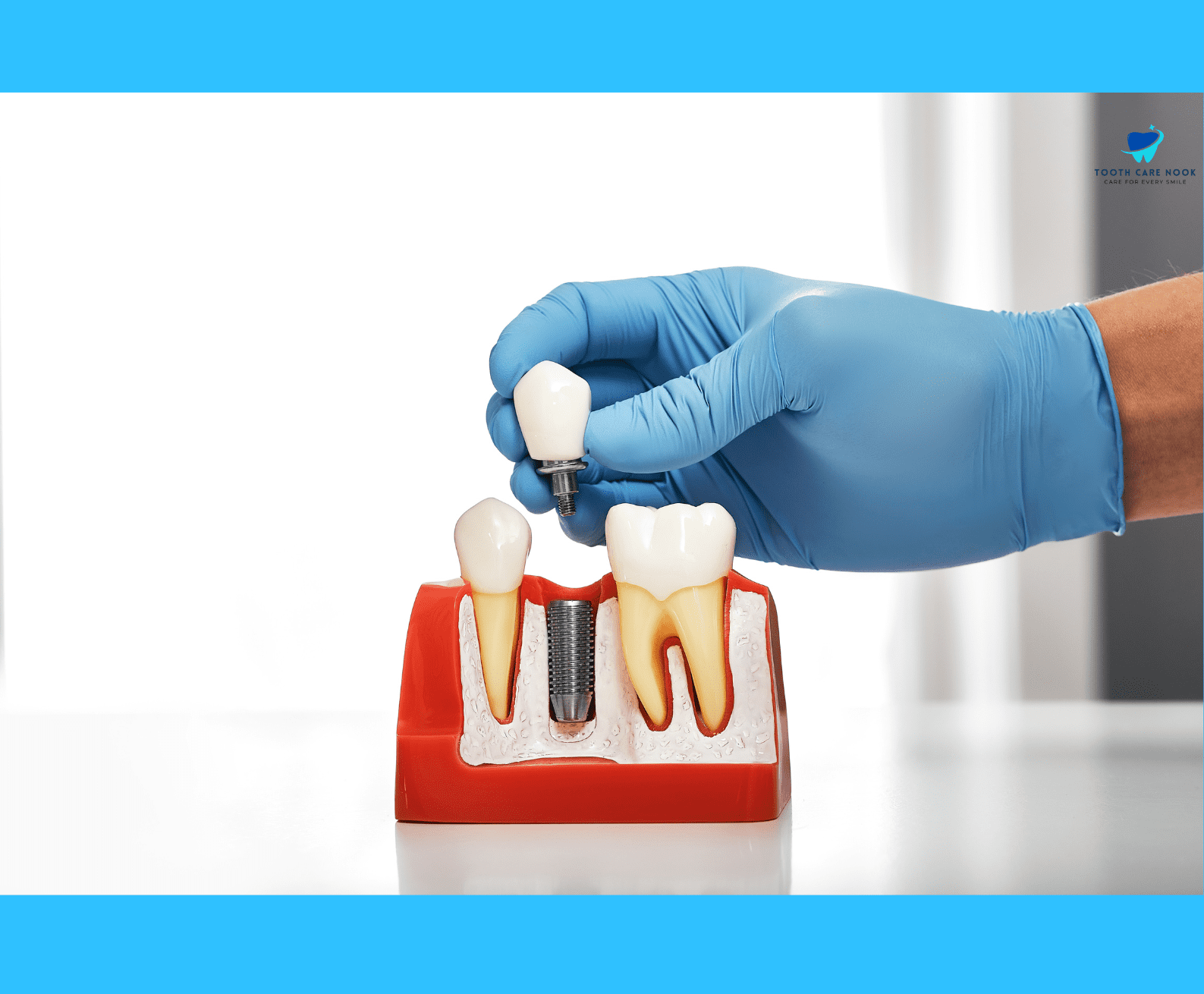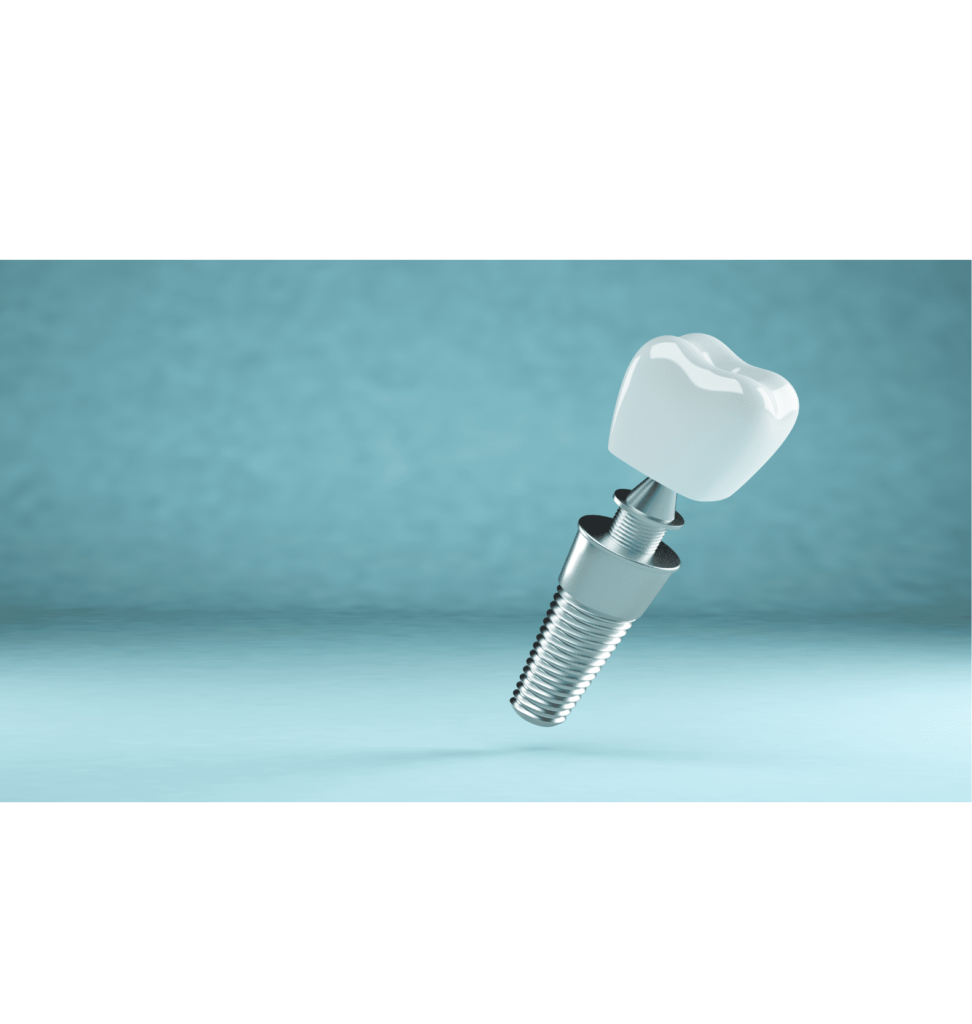Who Cannot Have Dental Implants?
Following are certain cases where dental implants cannot be suitable:
People Having Insufficient Bone Density:
Adequate bone density in the jaw is essential for the successful placement and stability of dental implants. Individuals with insufficient bone volume can require bone grafting procedures to augment the bone before implant placement.
Patients with Untreated Periodontal Disease:
Active gum disease compromises the stability of dental implants by affecting the supporting structures of the teeth and gums. Patients with untreated gum disease cannot get dental implants.
Patients with Uncontrolled Systemic Diseases:
Individuals with poorly managed systemic conditions cannot have dental implants. Certain systemic diseases, such as uncontrolled diabetes, autoimmune disorders, and bleeding disorders, can affect the body’s ability to heal properly after implant surgery.
Heavy Tobacco Users:
Smoking and tobacco use impairs the body’s ability to heal and increase the risk of implant failure. Heavy tobacco users are more likely to experience complications such as delayed healing, infection, and implant rejection. Dentists often advise patients to quit smoking before having implant surgery.
Persons Having Unrealistic Expectations:
Patients with unrealistic expectations about the outcomes of dental implant treatment or those who are unwilling to commit to proper oral hygiene and maintenance are not eligible for implants. It’s essential for individuals considering dental implants to have a thorough understanding of the procedure, potential risks, and long-term maintenance requirements.
What are the Requirements for Dental Implants?
Individuals considering dental implants must meet the following requirements:
- Sufficient bone density.
- Good oral health.
- General health status.
- Commitment to oral hygiene.
- Smoking cessation.
- Commitment to follow-up care.

What Factors Disqualify You to Be a Candidate for Dental Implants?
Severe Bruxism:
If you are someone with severe bruxism then you are disqualified as a candidate for dental implants. Severe bruxism can exert excessive pressure on dental implants, leading to implant failure, fracture, or loosening over time.
Previous Radiation Therapy:
Patients who have undergone head or neck radiation therapy can have compromised bone healing capacity which increases the risk of implant failure.
Chronic Sinus Issues:
Individuals with chronic sinus conditions or sinusitis may have compromised sinus anatomy, making implant placement in the upper jaw challenging or contraindicated.
Uncontrolled Mental Health Conditions:
Severe mental health disorders such as schizophrenia or severe anxiety disorders affect a patient’s ability to tolerate dental procedures or adhere to post-operative care. This problem disqualifies you from having a dental implant.
Oral Cancer History:
Individuals with a history of oral cancer or precancerous lesions require careful consideration and evaluation before undergoing any surgery.
How Old Do You Have to Be for Dental Implants?
Implants are generally considered after an individual has reached skeletal maturity, which is normally in late adolescence or early adulthood. This means that dental implants are commonly recommended for individuals at least 17 or 18 age.
Before this age, jaw growth and development are still ongoing which affects the stability and long-term success of dental implants.
Can You Get a Dental Implant while Pregnant?
No, it is not recommended to undergo dental implant placement during pregnancy. Pregnancy introduces unique considerations and potential risks that warrant caution when undergoing elective dental procedures.
Hormonal changes during pregnancy can increase the risk of gum disease and affect the healing process after implant surgery. Therefore, it is generally advisable to postpone non-urgent dental procedures like dental implant placement to ensure the safety and well-being of both the mother and the developing fetus.
Right Time for Implant After Pregnancy
The postpartum period offers a suitable opportunity for individuals to consider dental implant treatment following pregnancy and childbirth. You have to wait until after breastfeeding has ceased to undergo elective dental implant surgery.
This allows for any potential residual hormonal changes to stabilize and reduces any risks associated with anesthesia and surgery during pregnancy.
What are the Main Reason Implants Fail?
Here are the main reasons dental implants can fail:
- Improper implant placement.
- Infection.
- Fracture of the implant.
- Implant overloading.
- Inadequate bone grafting.
- Allergic reactions.


